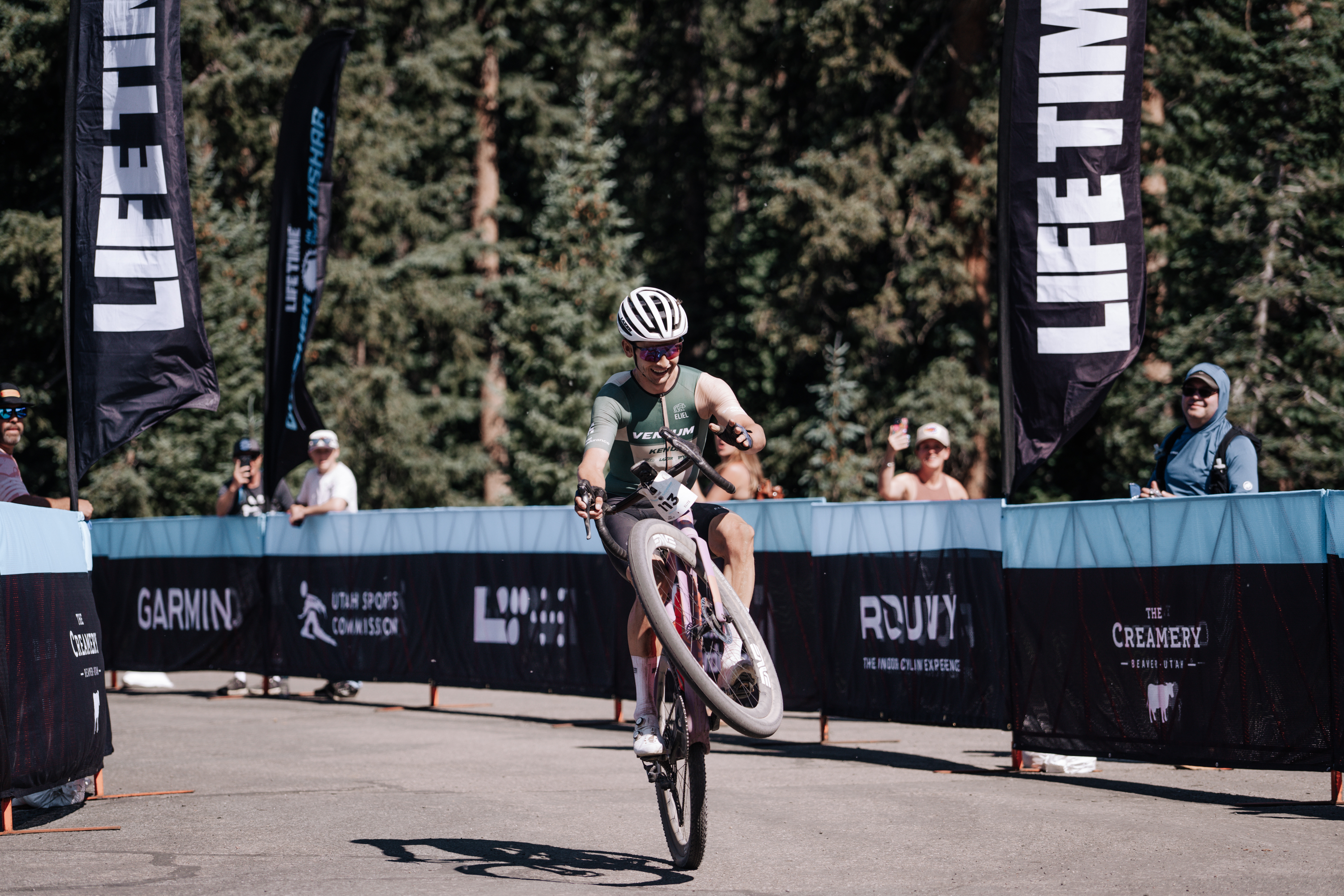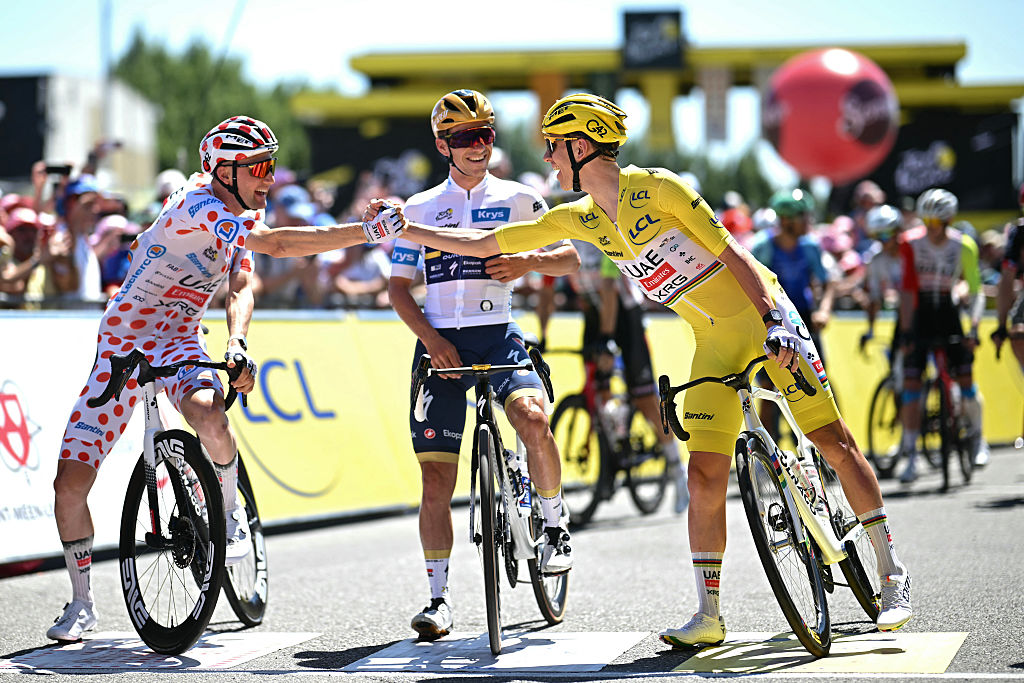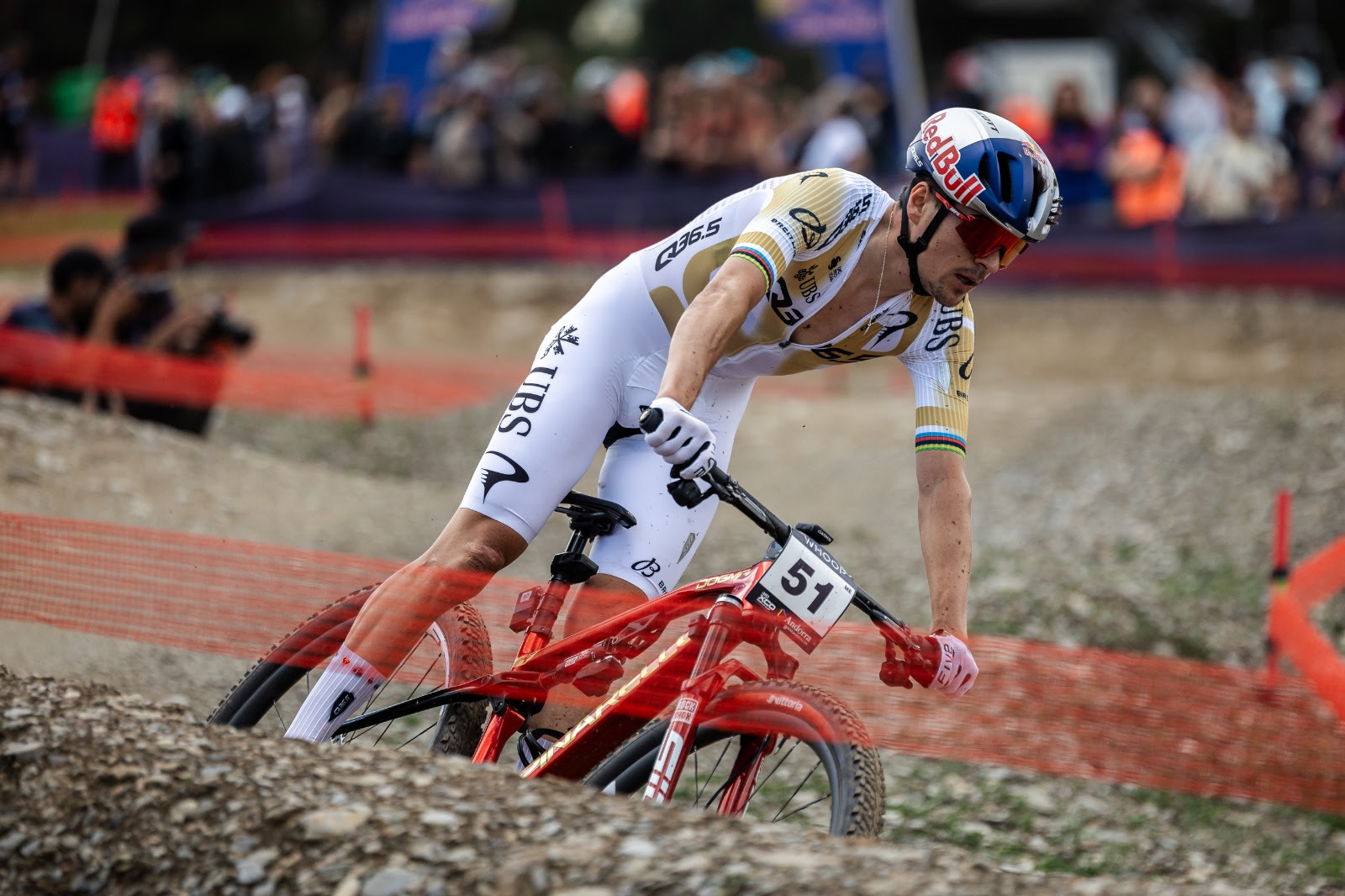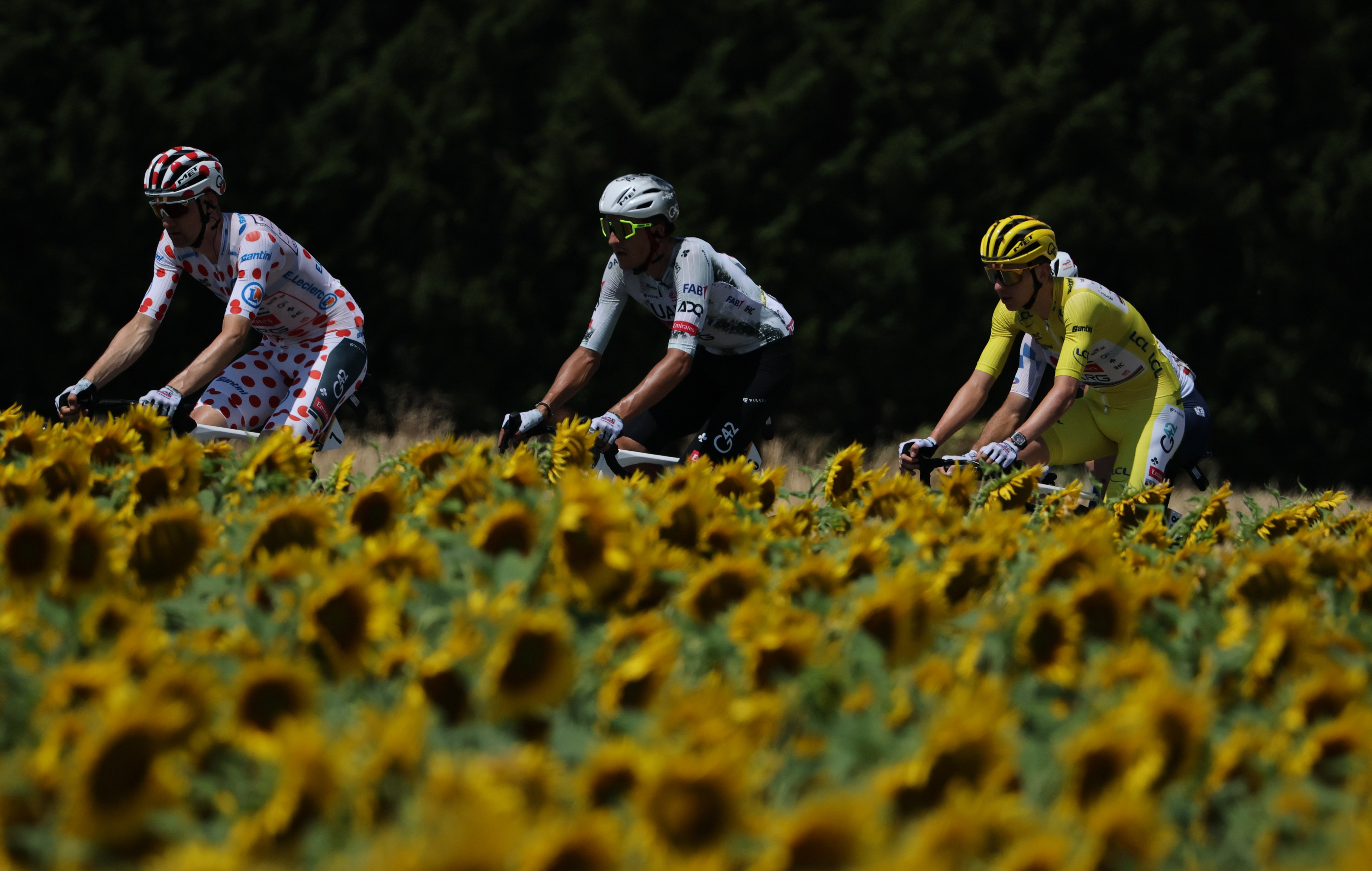UCI Road World Championships: Tadej Pogačar demolishes field with 100-kilometre attack to win elite men's world title
Ben O'Connor takes second with Van der Poel handing off rainbow jersey with bronze
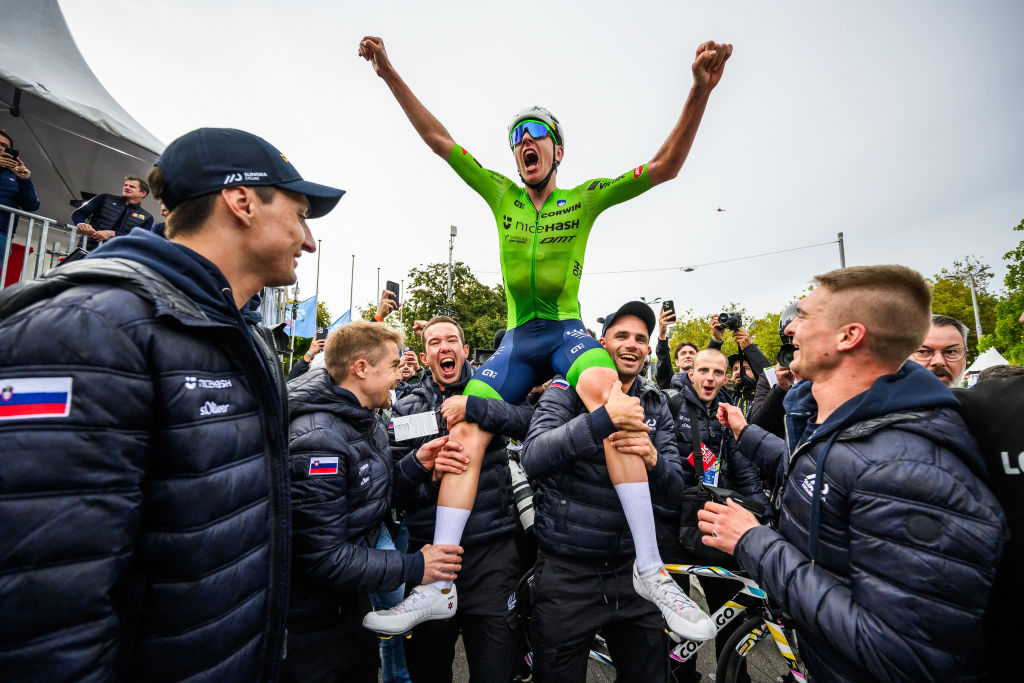
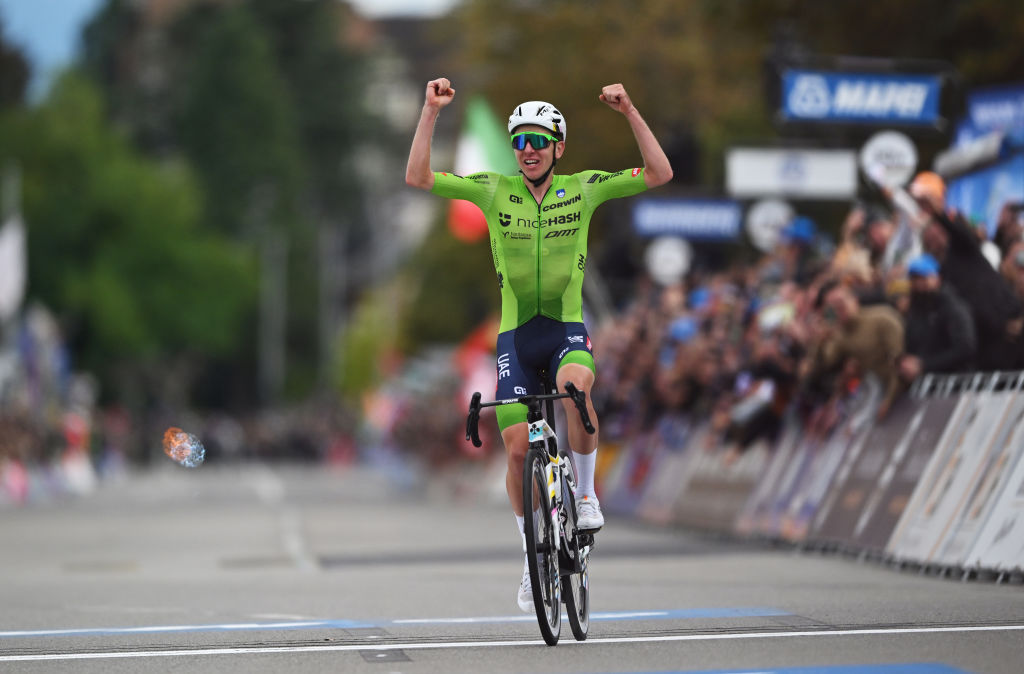
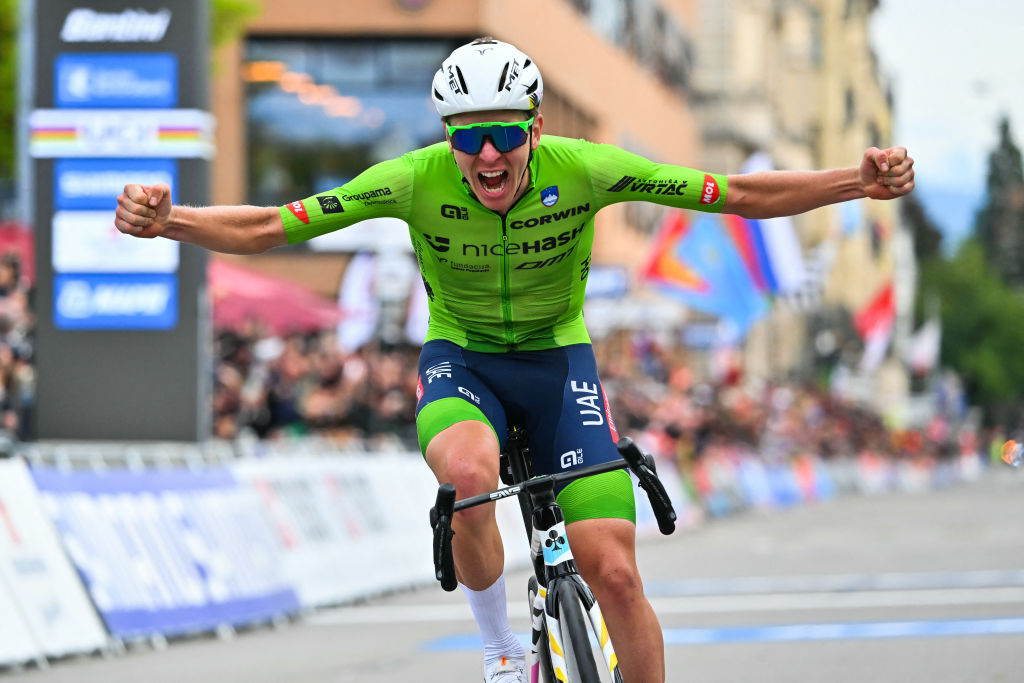
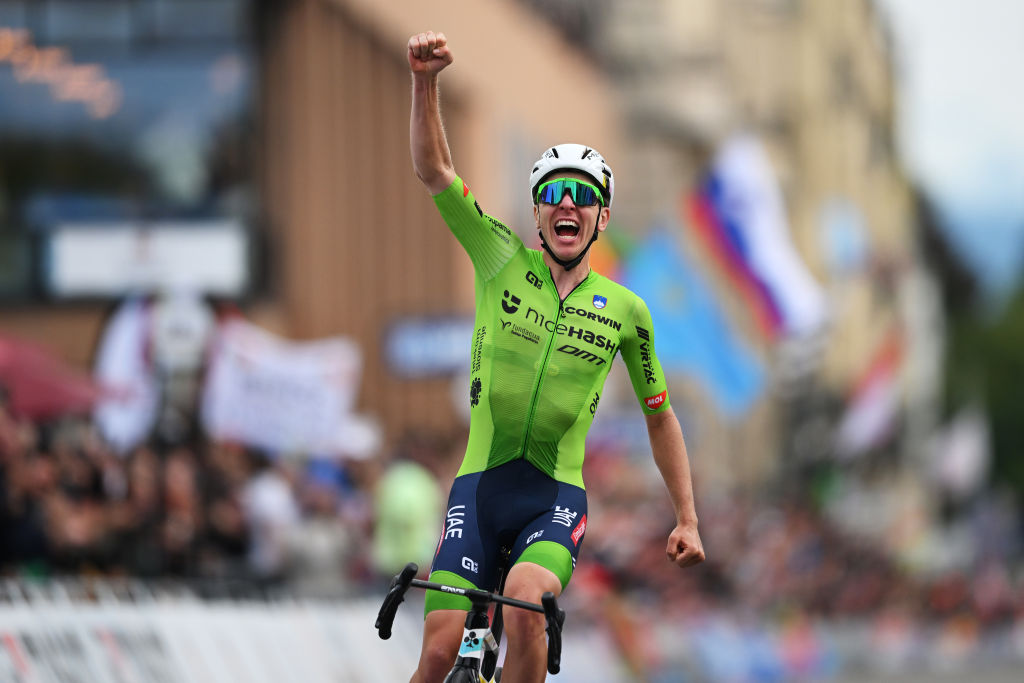
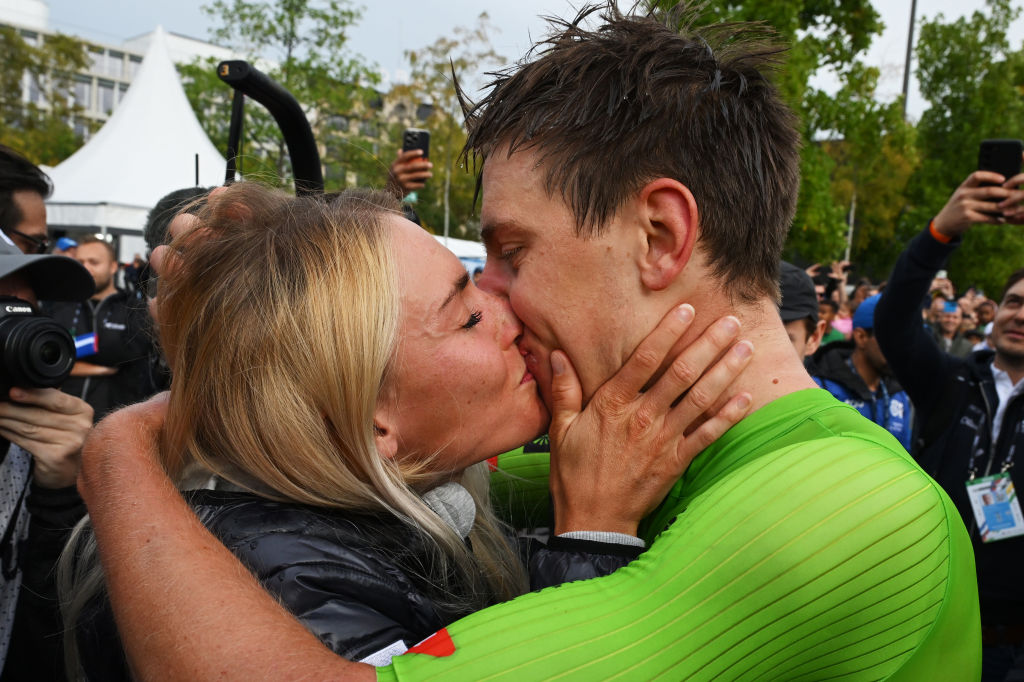
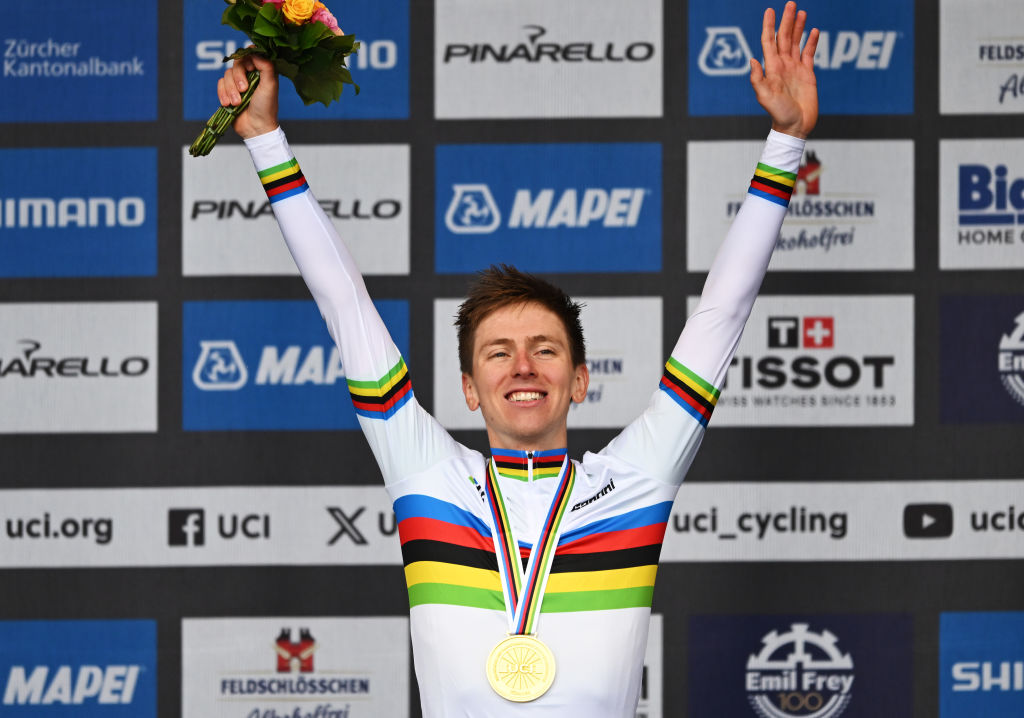
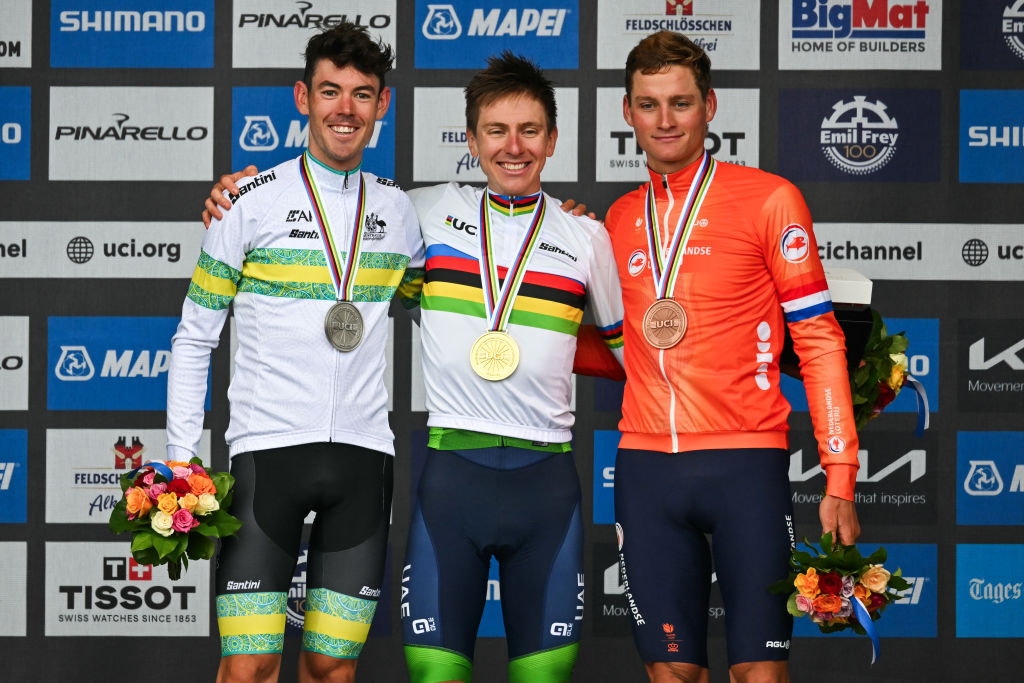
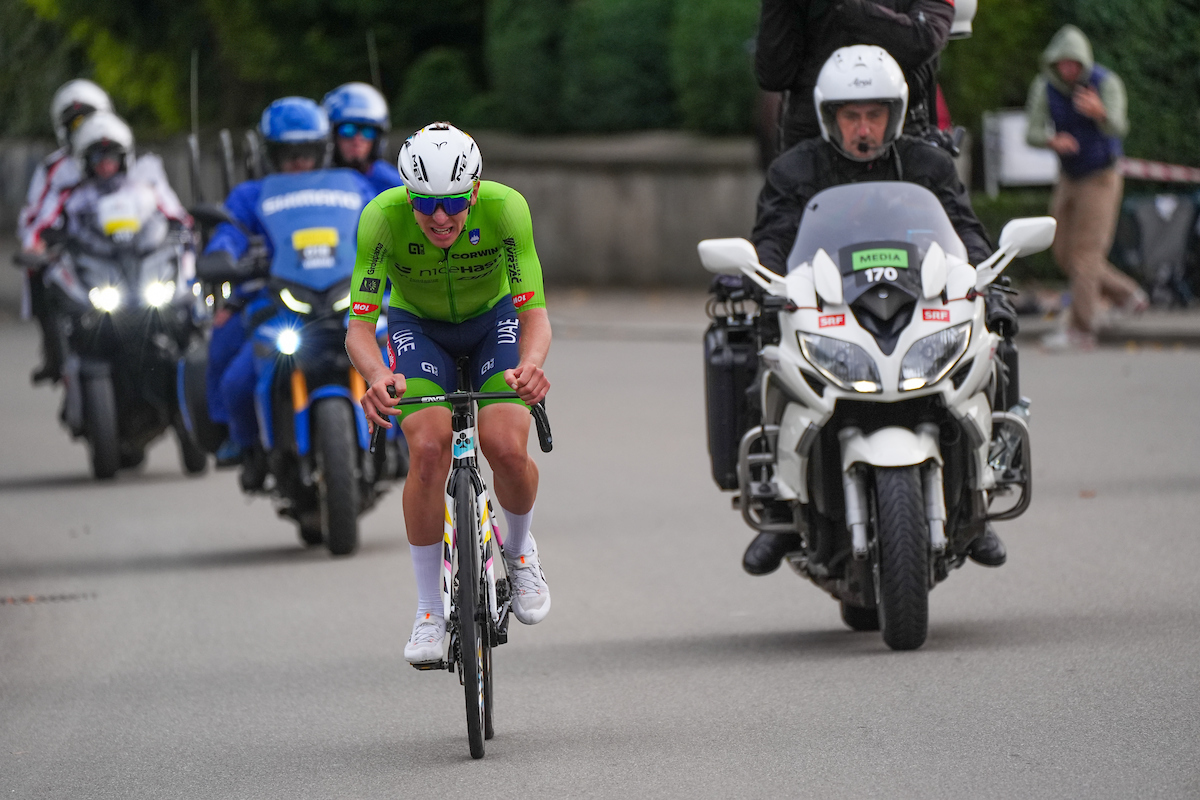
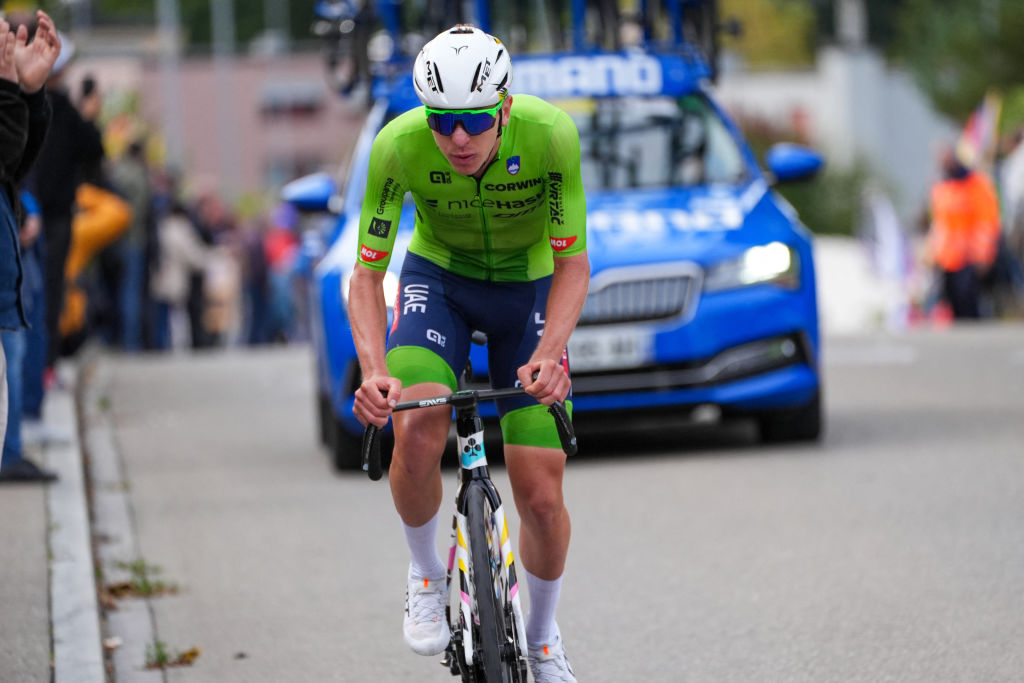
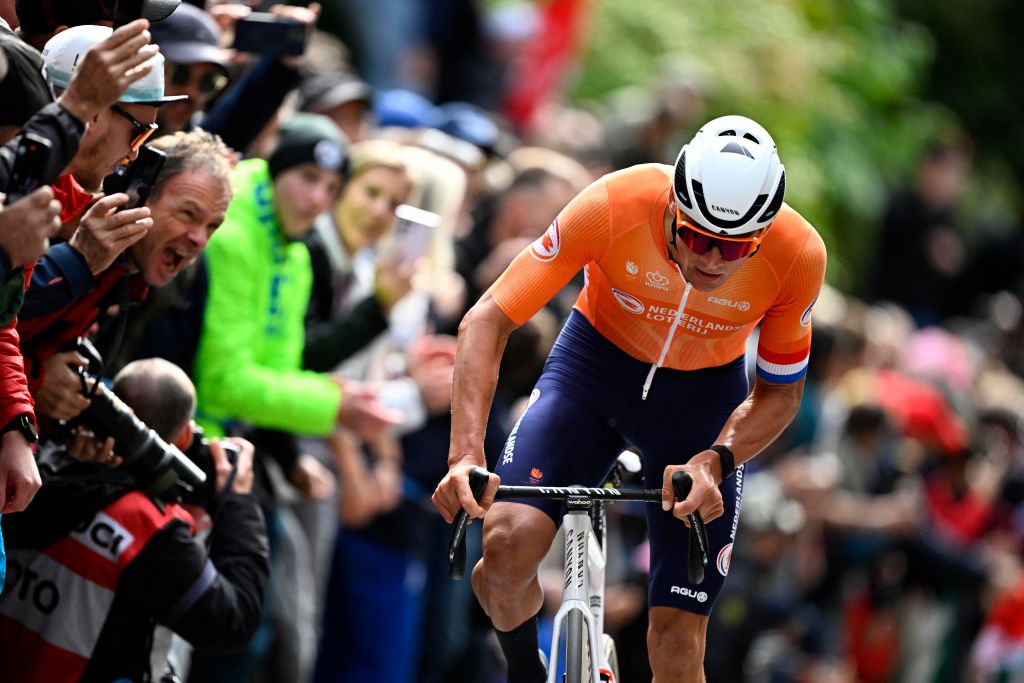
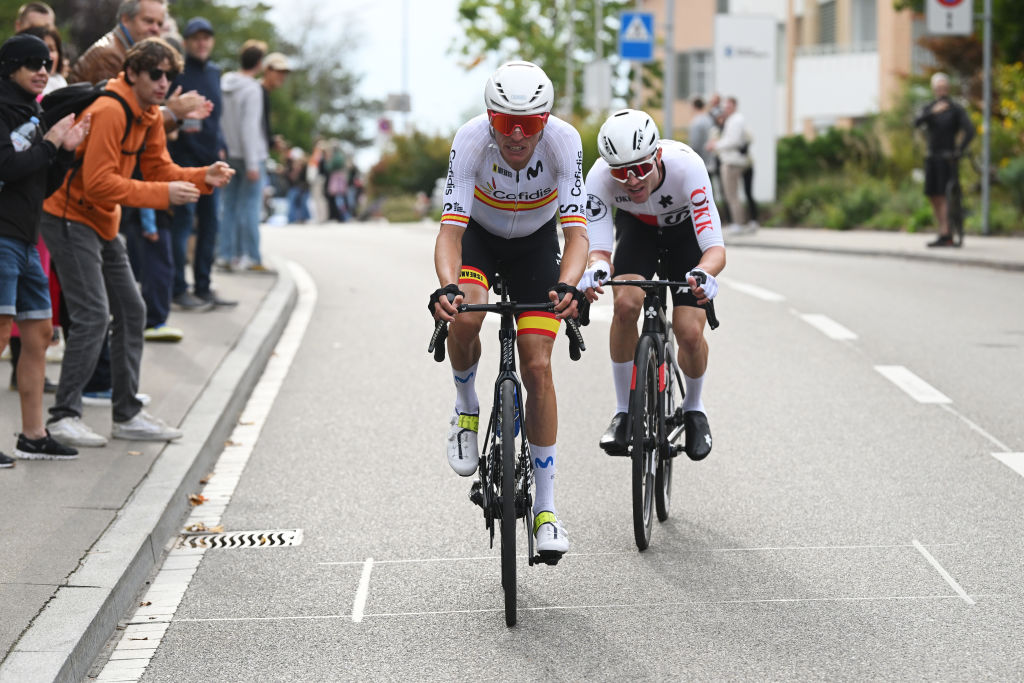
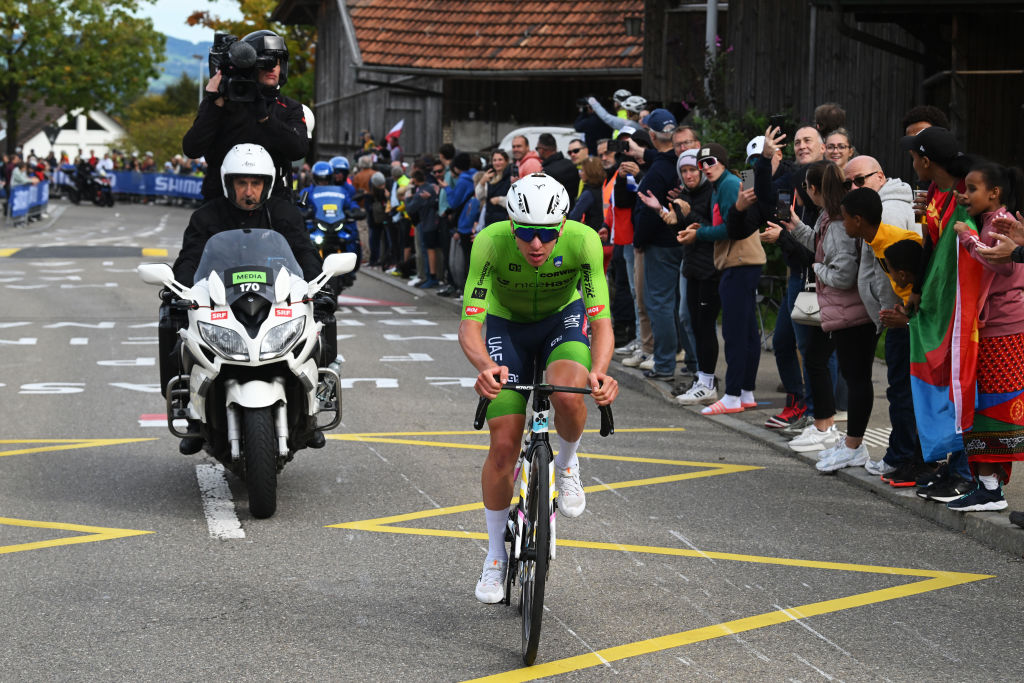
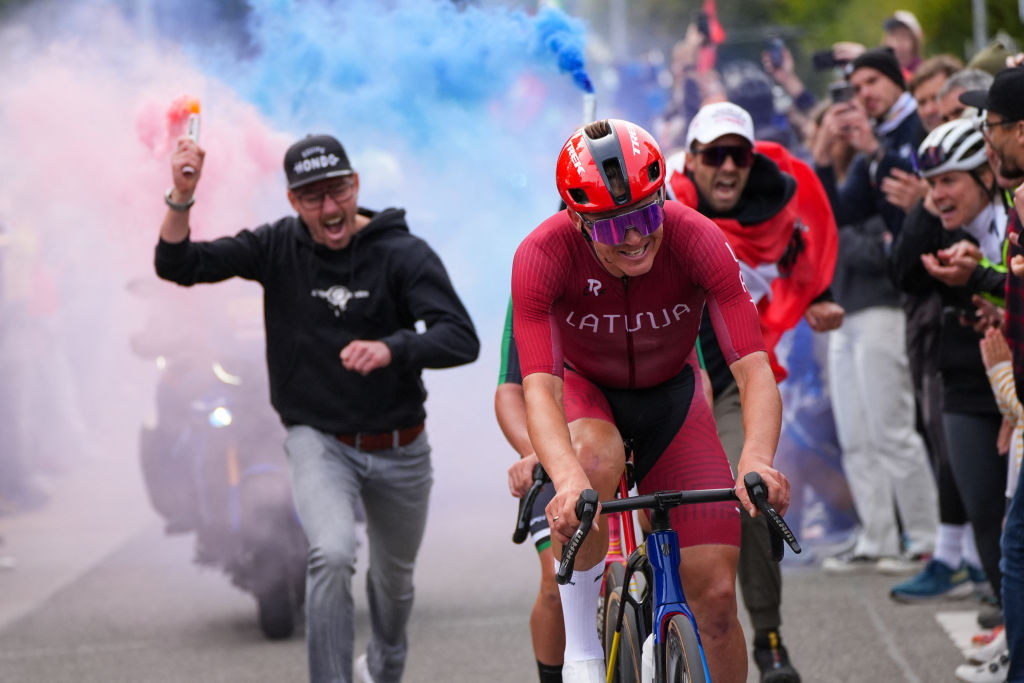
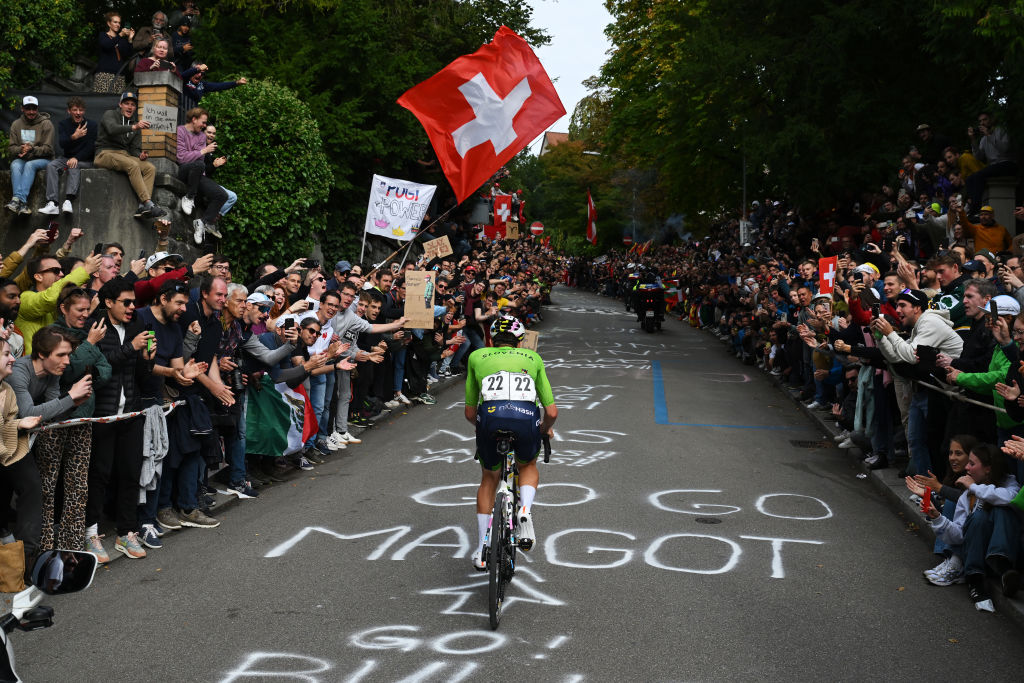
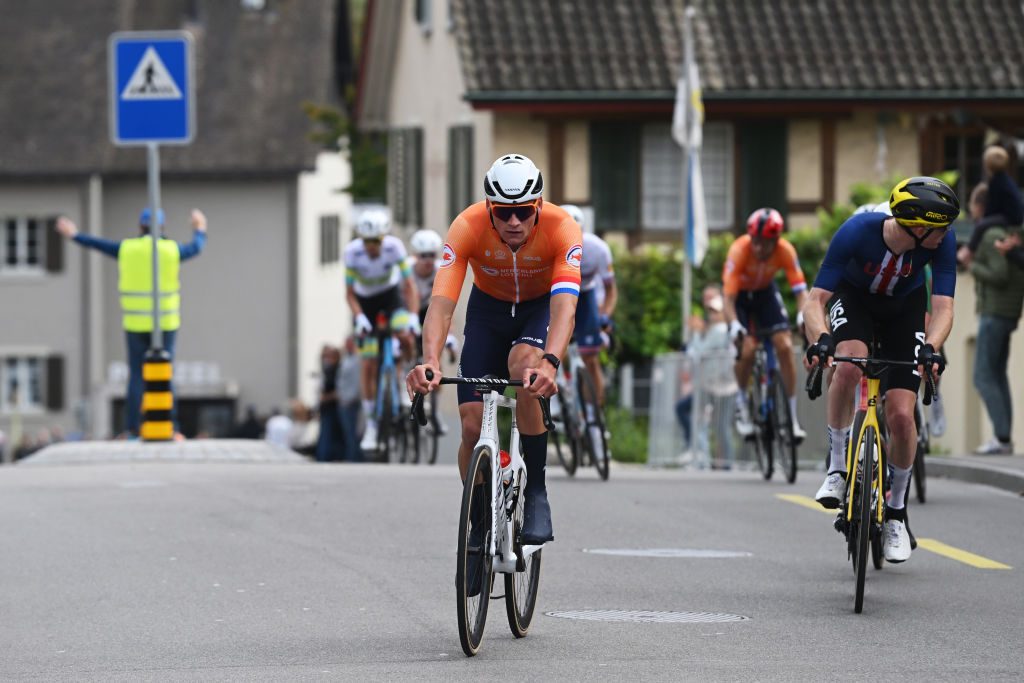
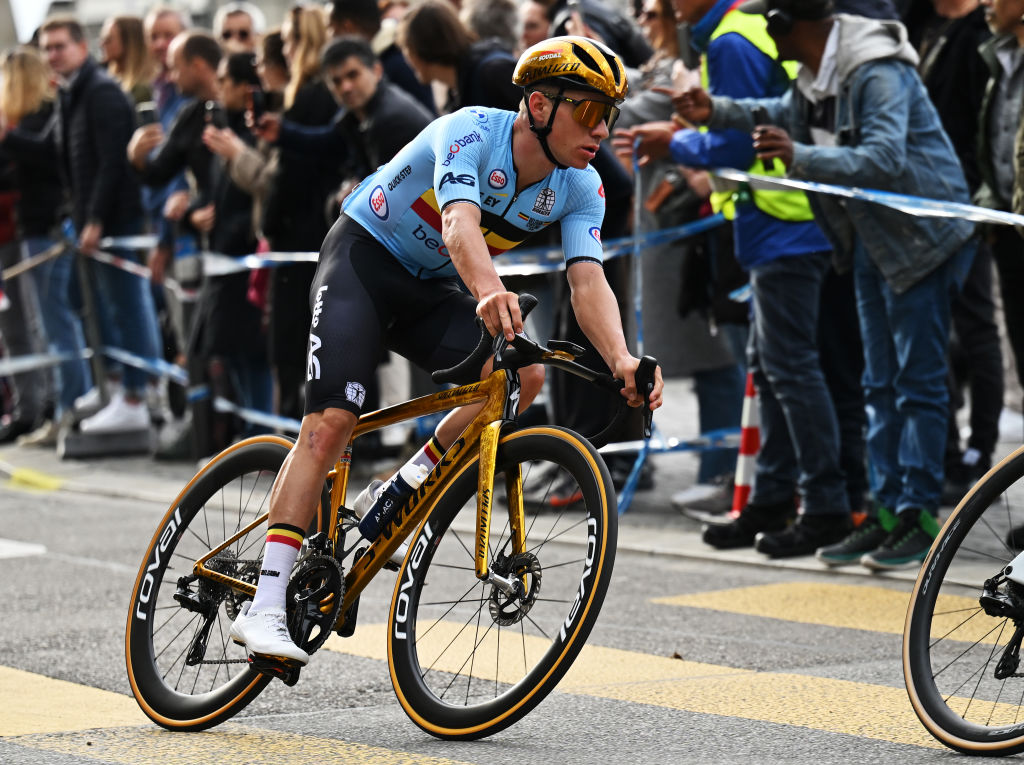
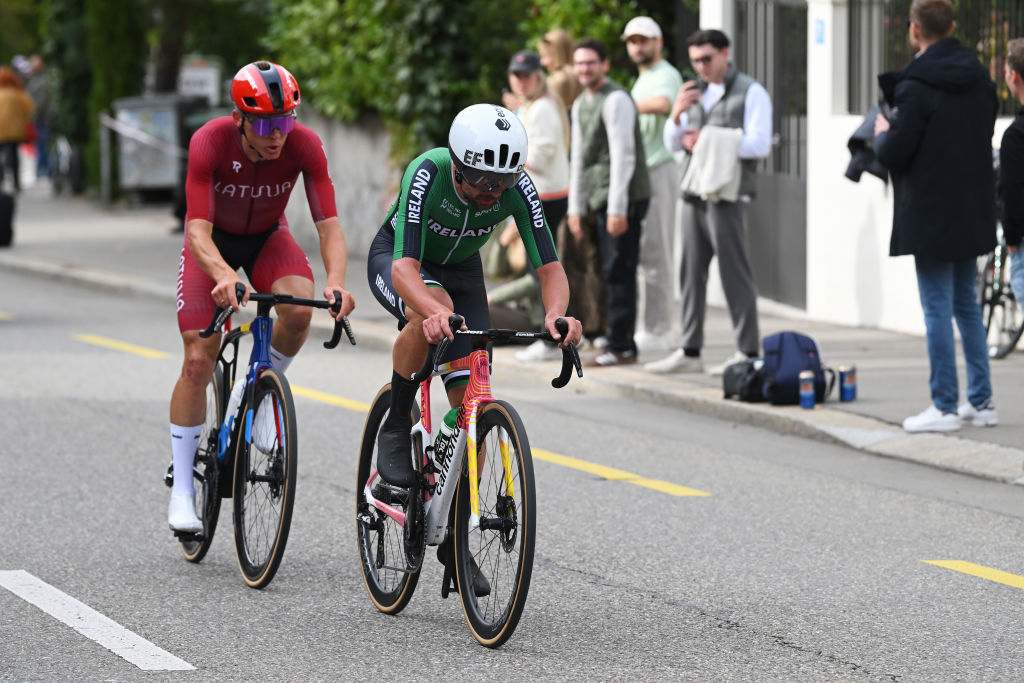
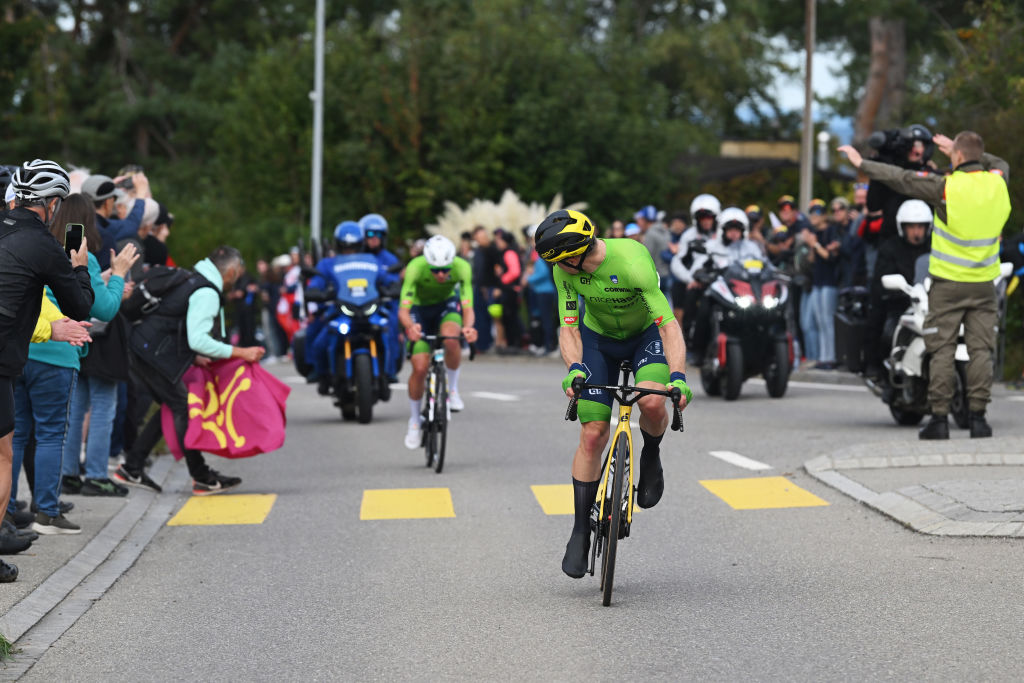
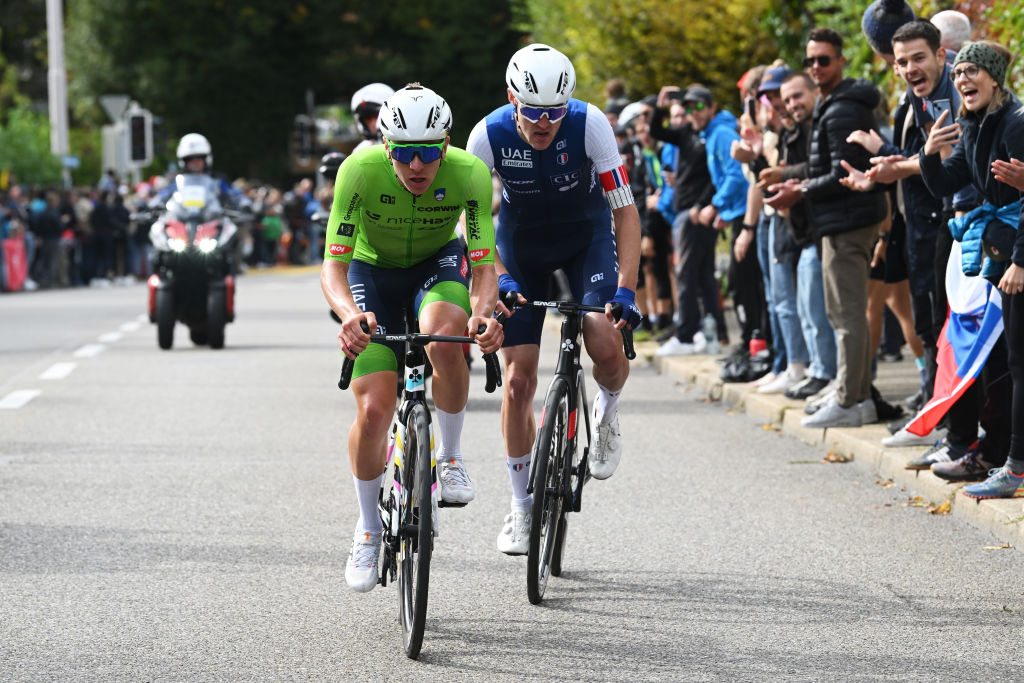
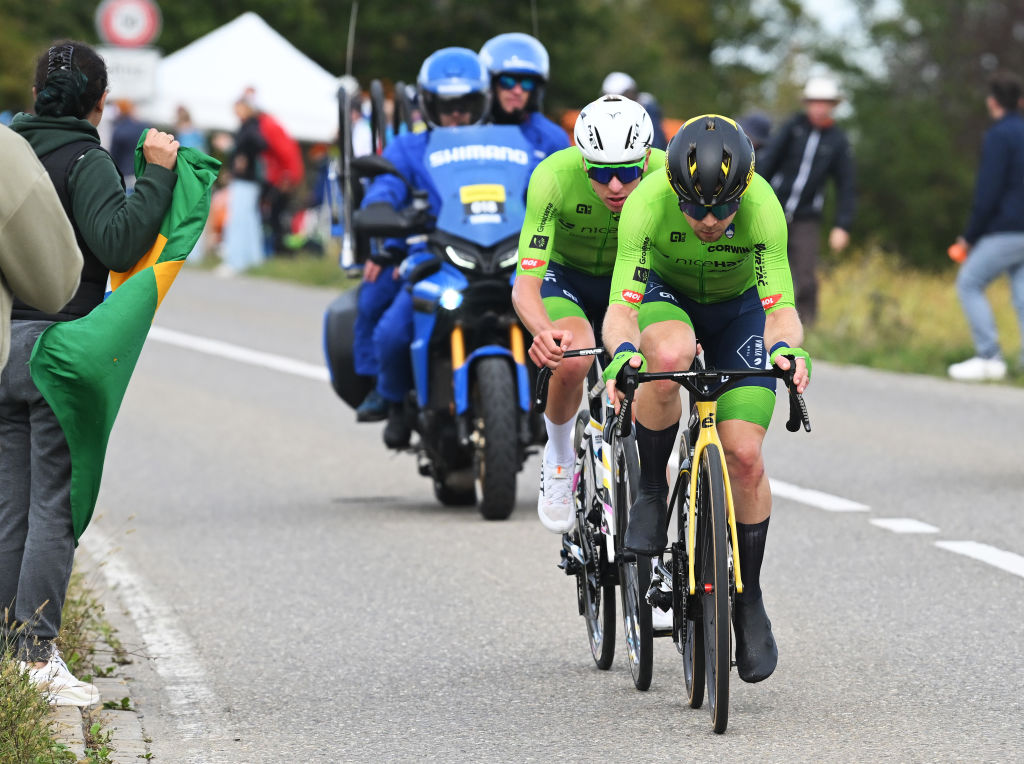
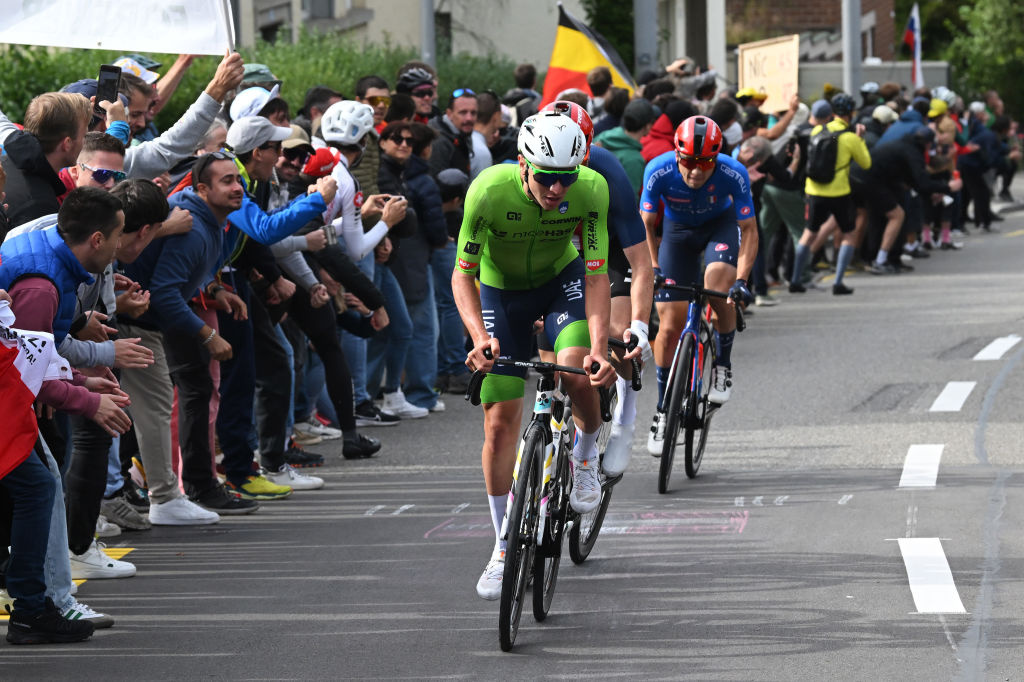
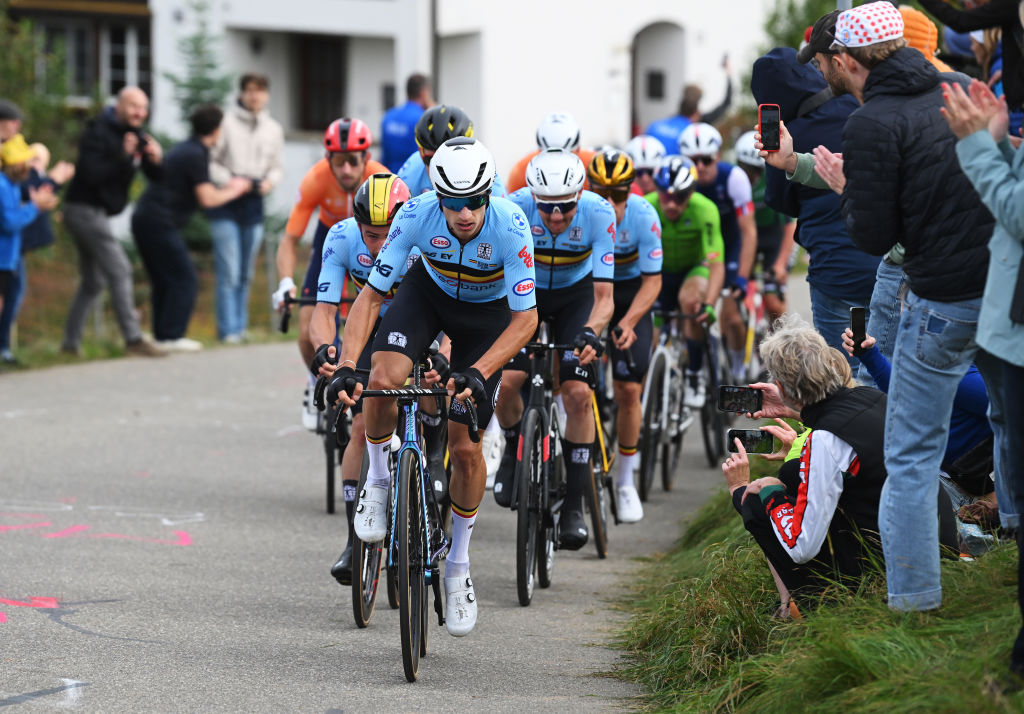
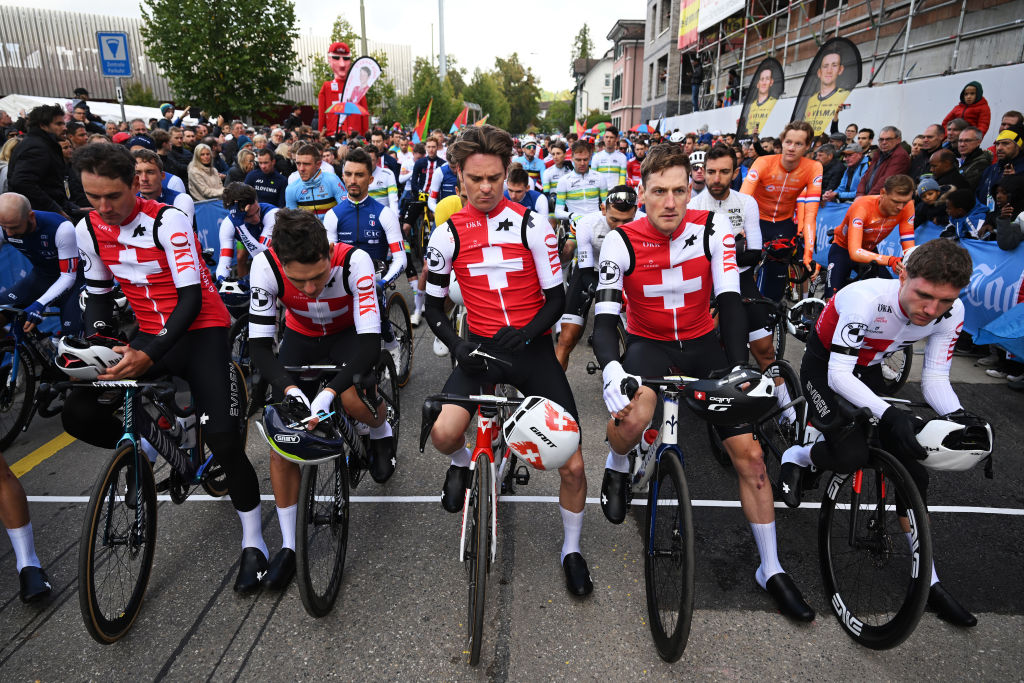
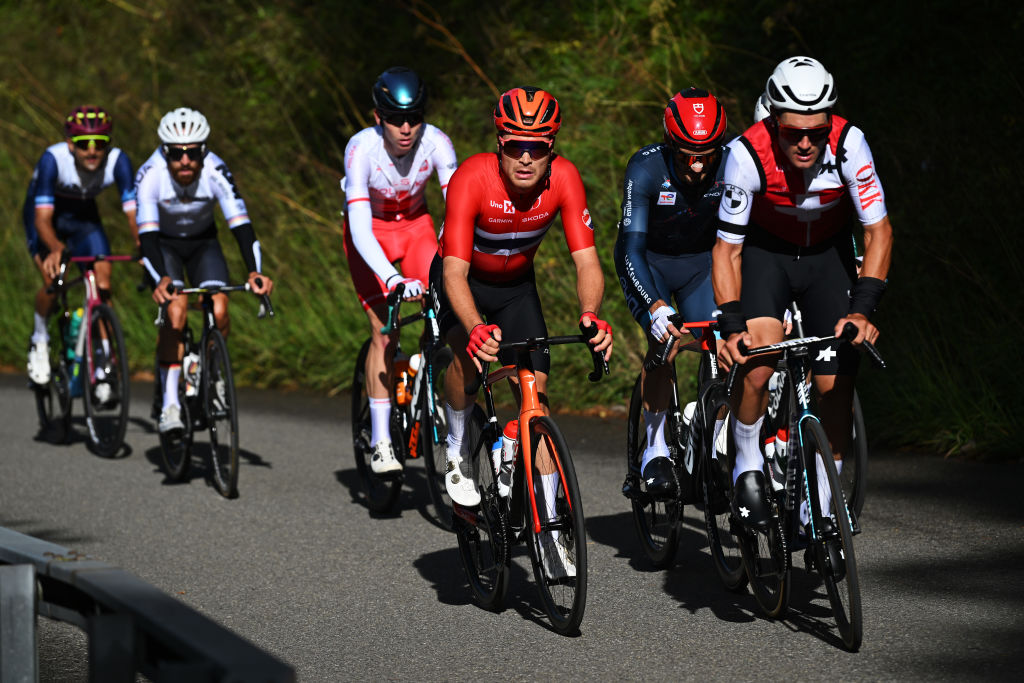
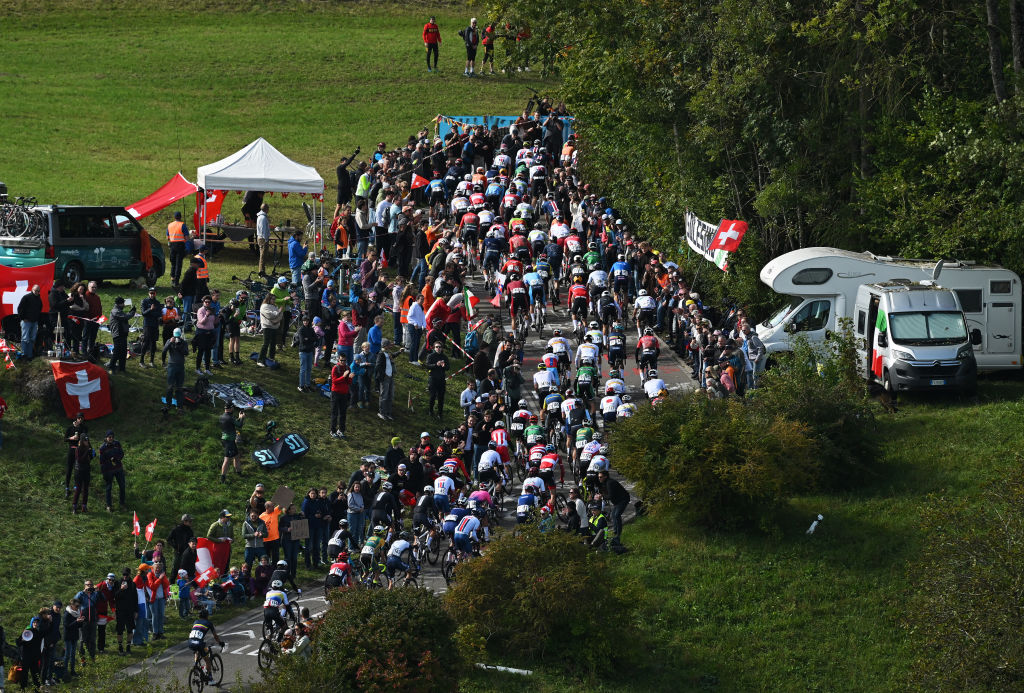
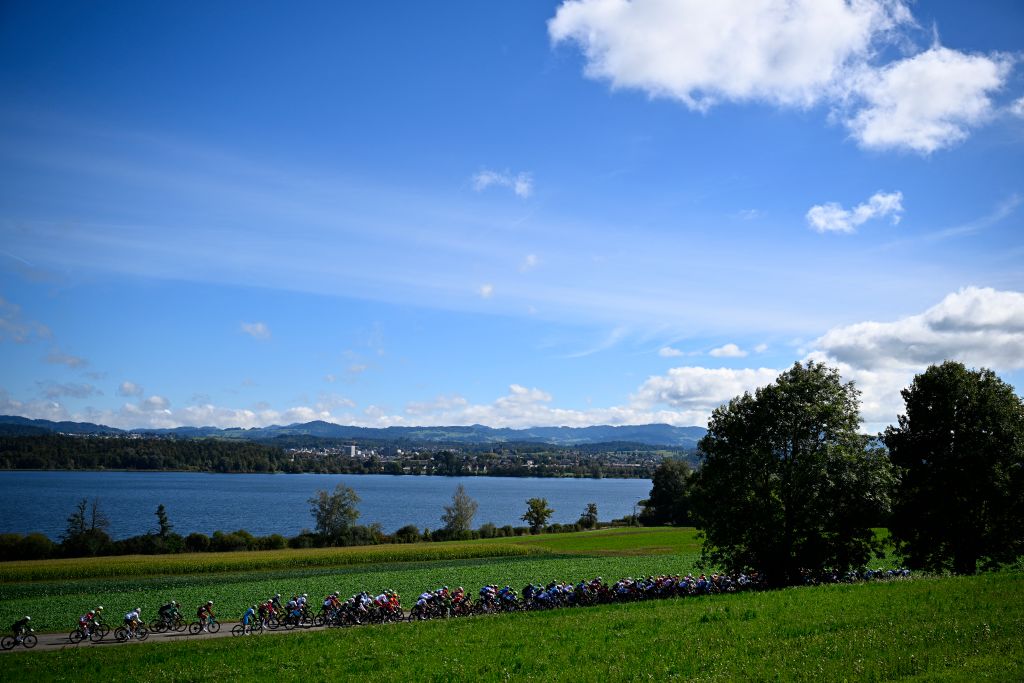
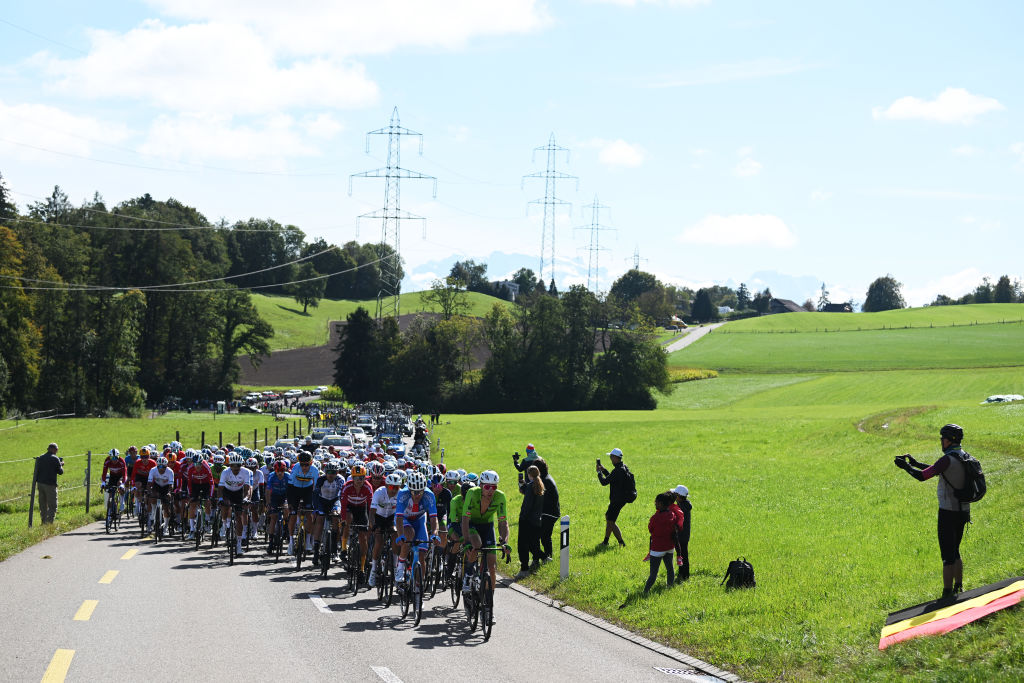
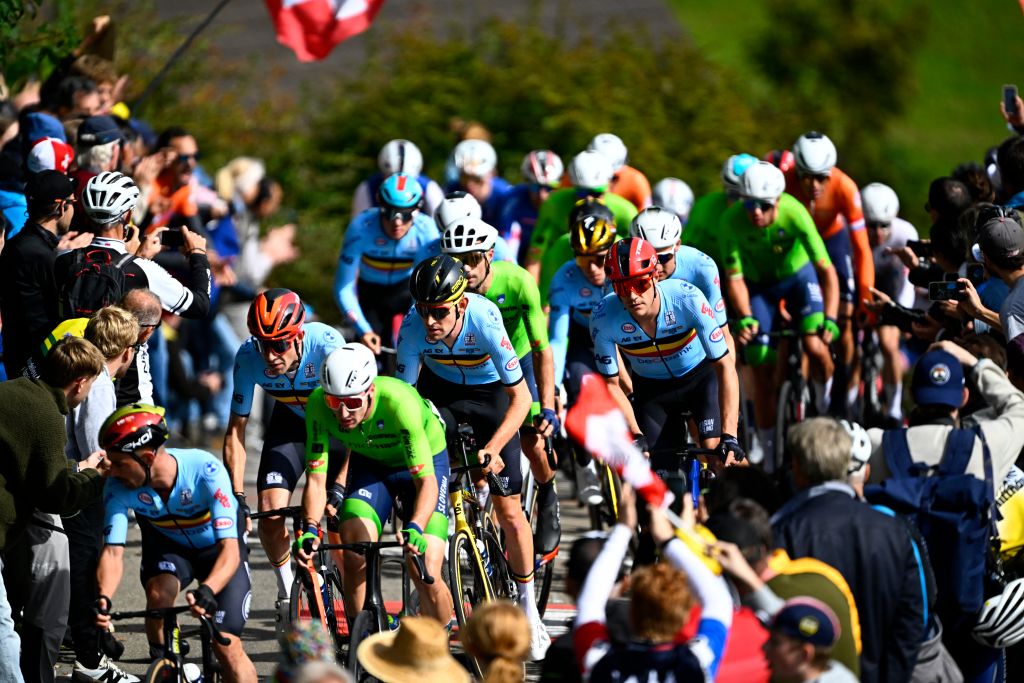
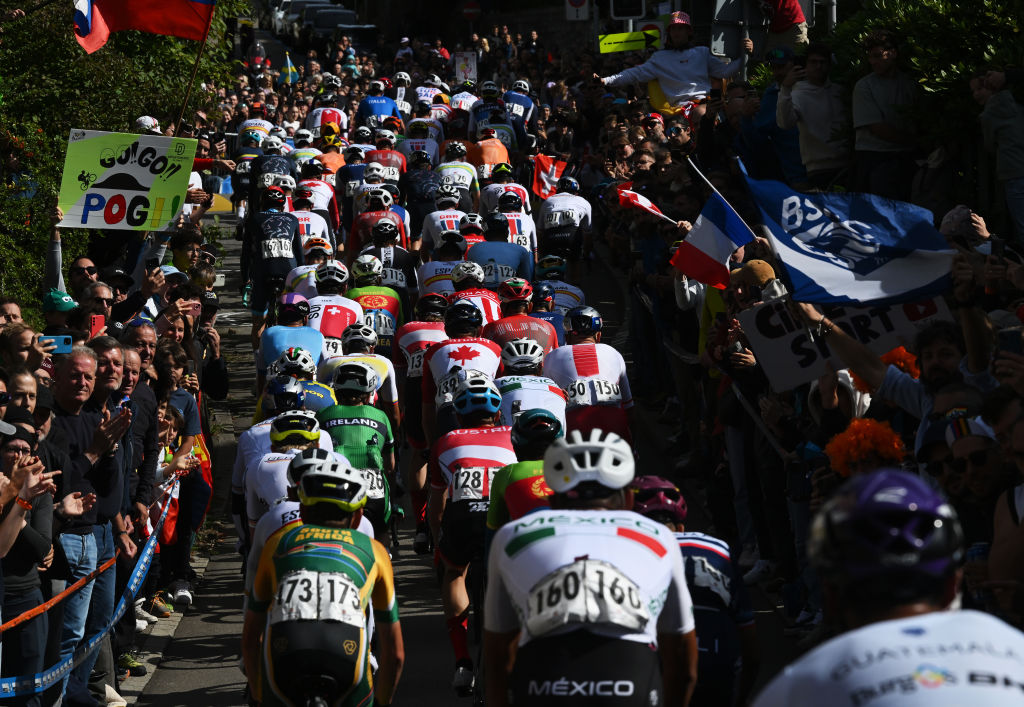
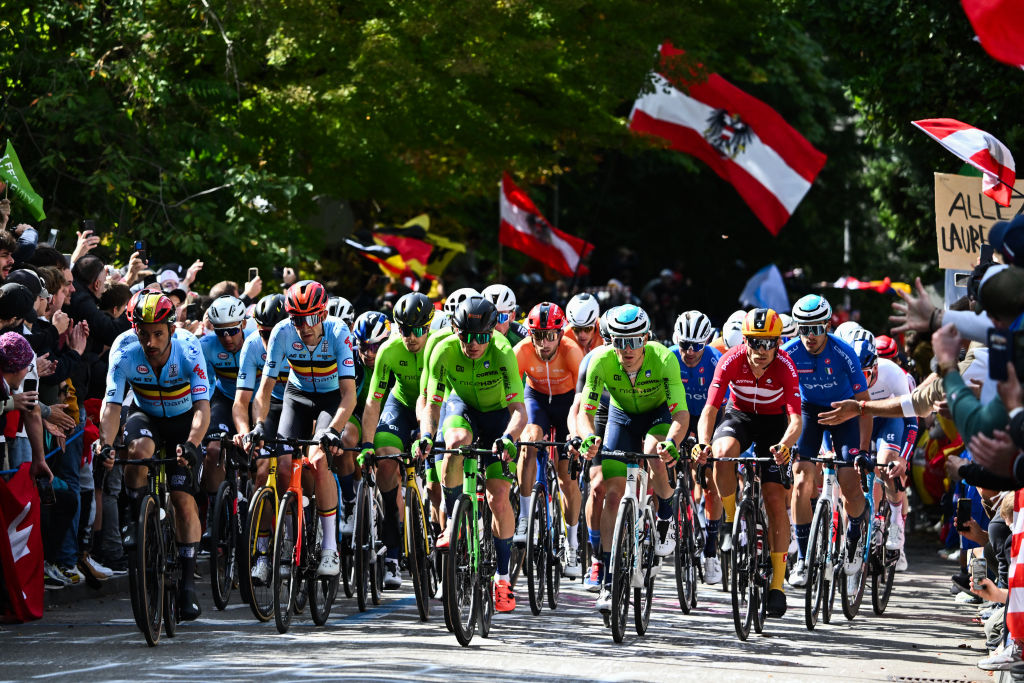
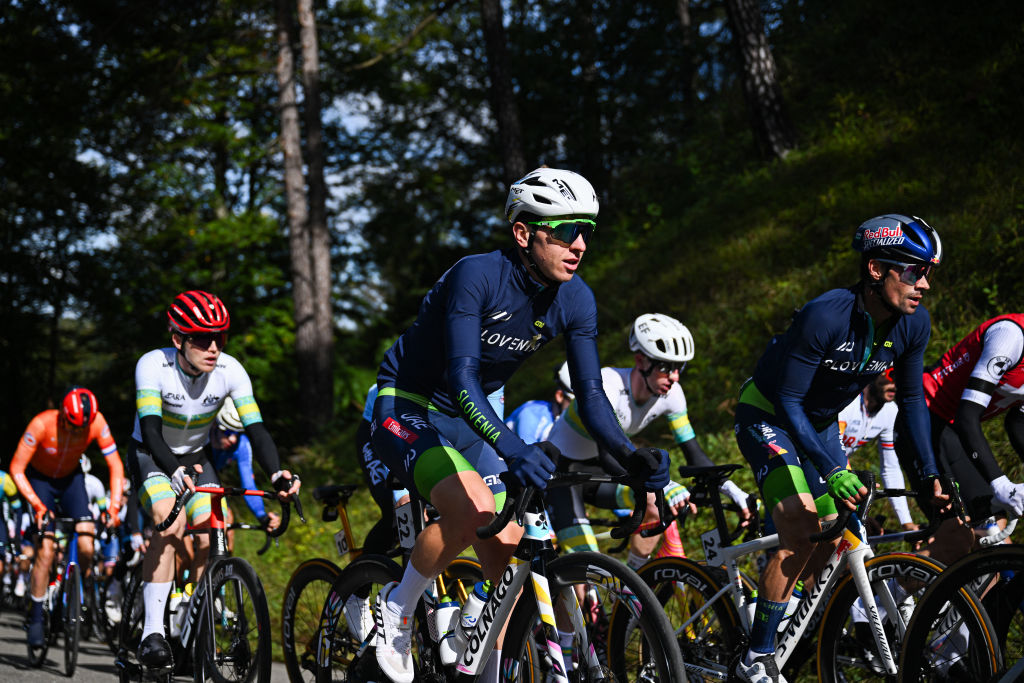
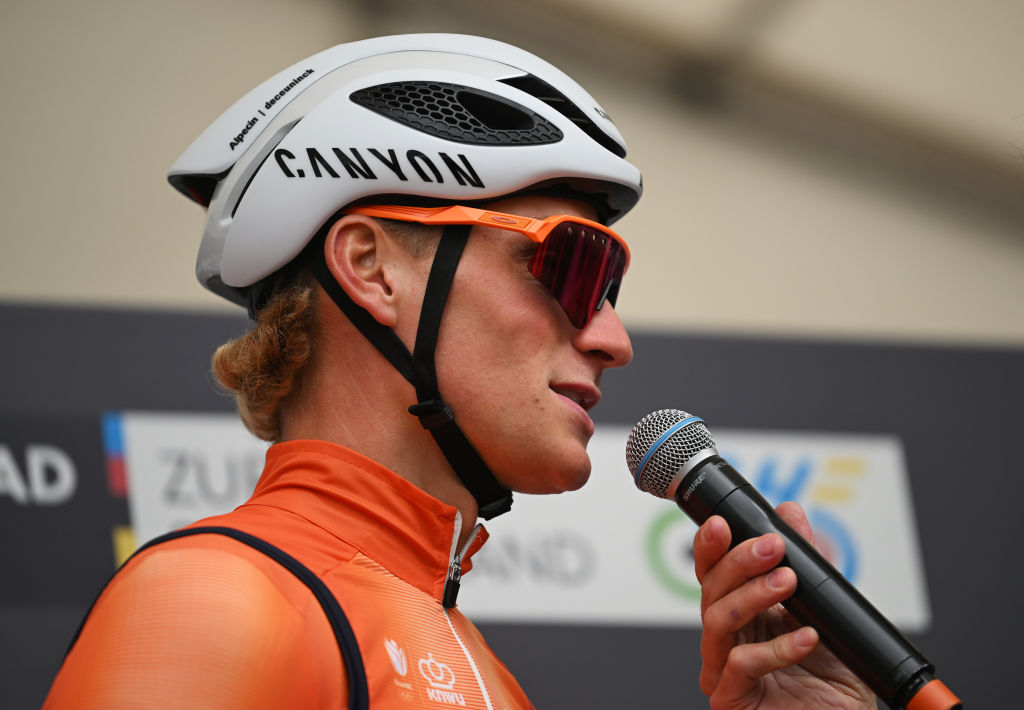
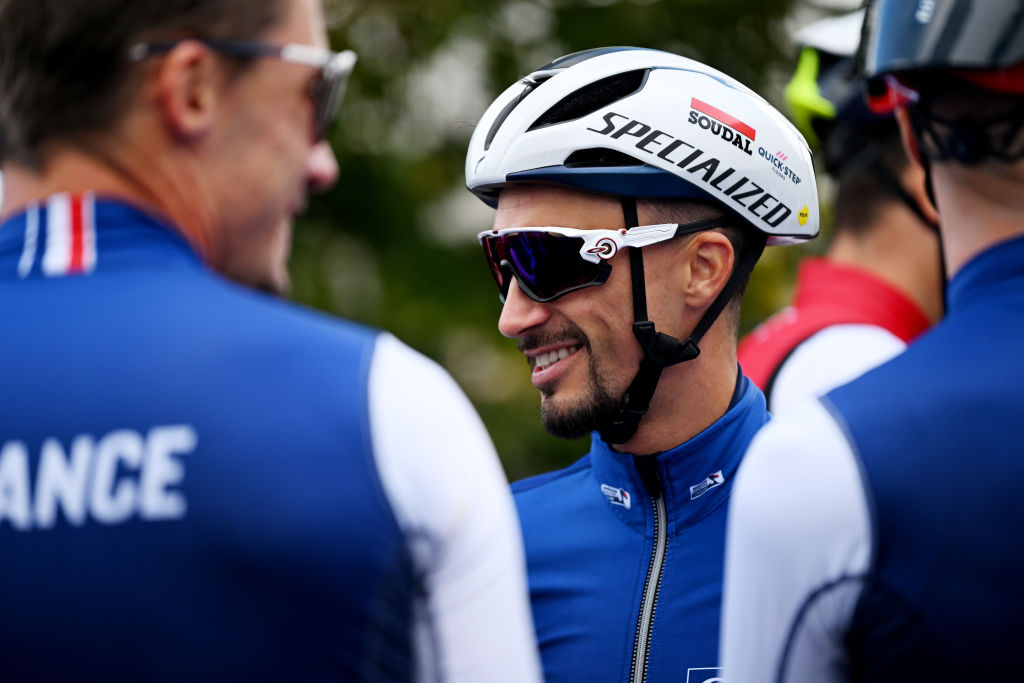
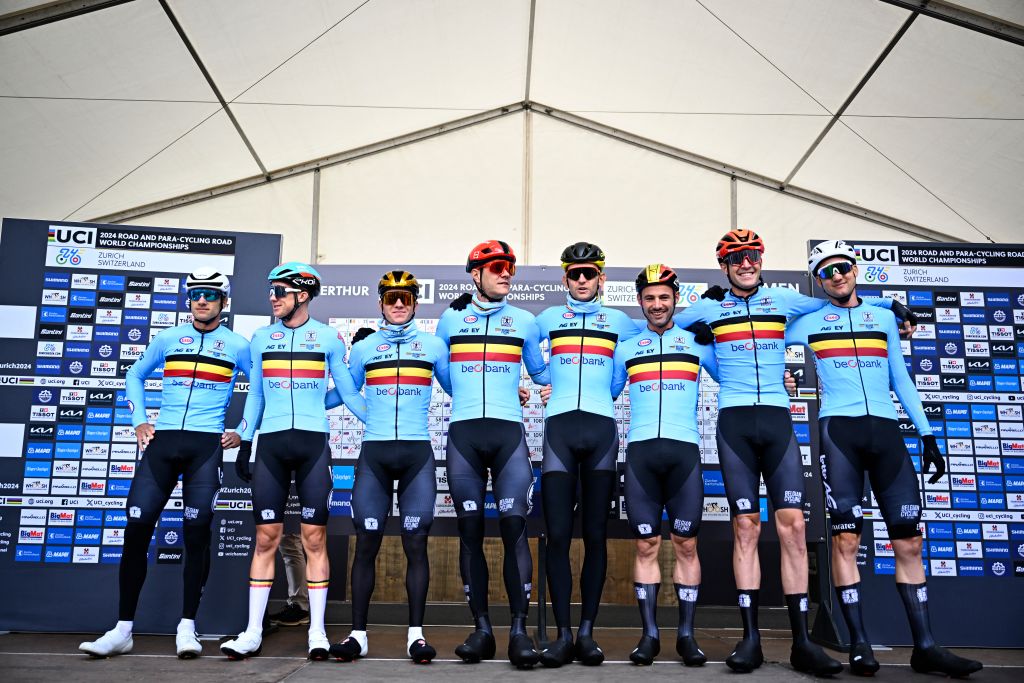
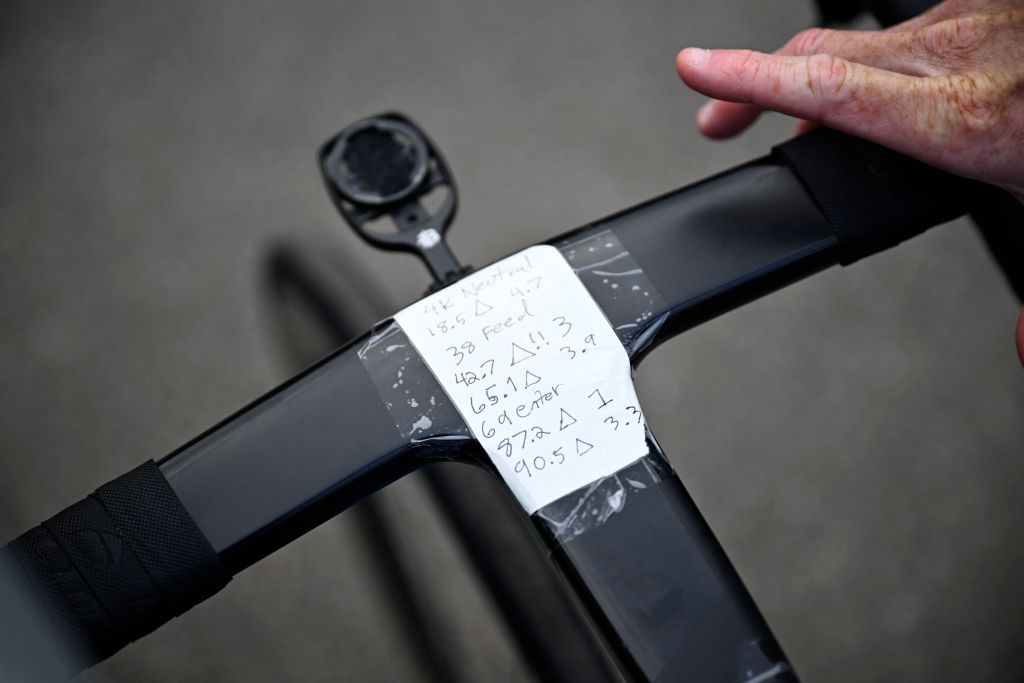
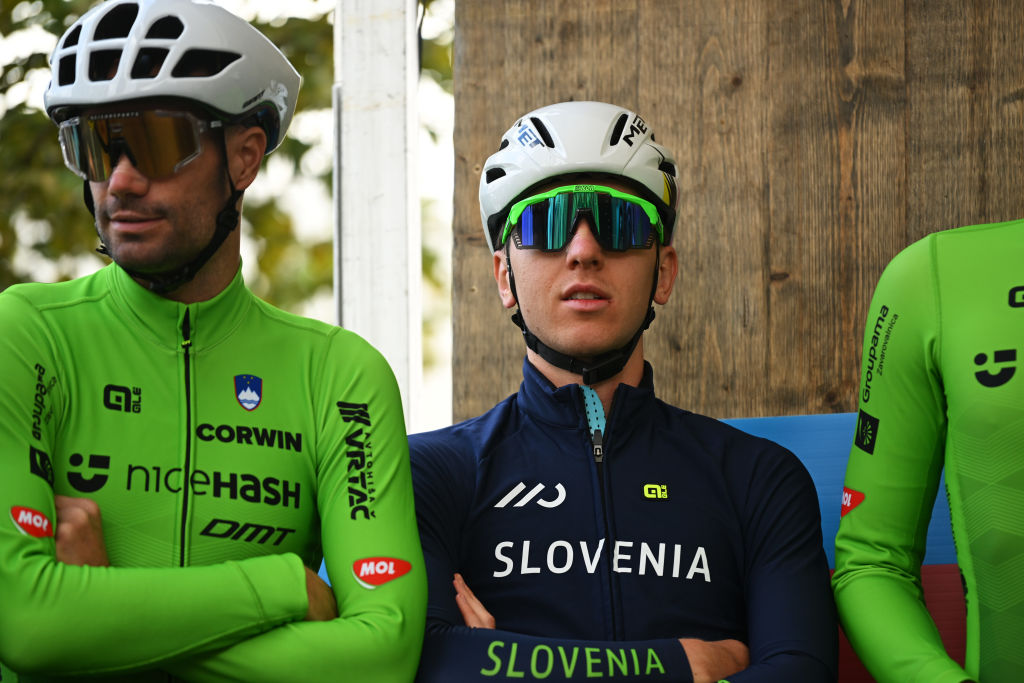
The 2024 UCI Road World Championships witnessed history in the making on Sunday as Tadej Pogačar became the first rider in 37 years to follow up this season's victories in the Giro d'Italia, Tour de France with a gold medal and the rainbow jersey in the elite men's road race.
The Slovenian claimed cycling's Triple Crown in devastating style, breaking away from the main peloton with 100 kilometres to go, blasting through a 16-rider move then going solo some 50 kilometres from the line.
Pogačar looked briefly to be in trouble as his gap dipped below 40 seconds on the final lap, but he still remained clear for Slovenia's first ever road race gold medal, his 23rd win of the 2024 season, and another giant step towards becoming a legend of the sport.
The silver medal went to late attacker Ben O'Connor (Australia), crossing the line 31 seconds behind, with defending champion Mathieu van der Poel (Netherlands) then claiming the bronze.
But in one of the most stunning World Championships rides in the race's history, the day in cycling, the year and perhaps even the decade all belonged to Pogačar.
"I cannot believe what just happened, after this kind of season, I put a lot of pressure on myself for today. I had pressure from myself, from the team, we came here for the victory.
"The race unfolded pretty quick and there was a dangerous break in the front, I maybe did a stupid attack, luckily Jan [Tratnik] was there with me and I never gave up until the final. It's an incredible day, I can't believe what happened."
Pogačar confirmed that his attack at 100 kilometres to go, an enormous distance even by the Slovenian's standards, had not been planned.
"Of course,it was not planned. We had planned to keep race under control but the race went quite early and I don't know what I was thinking and I just went also, I went with the flow and luckily I made it, but it was so tough."
"For sure I wanted this title, after many years fighting for the Tour de France and other races, I never had a World Championships as a pure goal, and this year everything went smoothly already.
"After a perfect season, this was a big goal to win the World Championships and I can't believe it happened, I have to thank the whole team, without them it would not have been possible and I'm super proud of the national team."
How it unfolded
Just as in the elite women's equivalent event, at the start in Winterthur a minute's silence was held in memory of Muriel Furrer, the Swiss junior who died from injuries incurred in a crash in Thursday's race. Once again, too, the Swiss team stood at the front of the bunch during the brief but moving ceremony. Then the flag dropped and after a thankfully short neutralized section on the typically drawn-out Worlds course, racing on a dry, cool day got underway.
For nearly 40 kilometres, when it came to the early break nothing seemed to be sticking. But at last a concerted effort went clear with local hero Silvan Dillier (Switzerland), Luc Wirtgen (Luxembourg), and Piotr Pekala (Poland) receiving further valuable reinforcements in the shape of former World TT Champion Tobias Foss (Norway), Rui Oliveira (Portugal), Simon Geschke (Germany), Markus Pajur (Estonia) and Roberto Carlos Gonzalez (Panama). Pajur and Gonzalez started struggling almost immediately, but more than enough firepower and variety in talent remained amongst the half-dozen breakaways to handle the dauntingly difficult terrain that lay ahead.
In a largely uneventful opening segment, a small crash for Pello Bilbao (Spain) into a farmyard fence saw the veteran outsider in some pain but able to continue. However, the same was not true of Julian Alaphilippe, whose hopes of a record-equalling third rainbow jersey ended prematurely when the Frenchman fell and had to quit even before the race had reached the finishing circuit around Zurich.
Then for over an hour a holding pattern emerged, with Victor Campenaerts and Jan Tratnik, working for Belgium and Slovenia respectively, keeping the half-dozen ahead under control at around four minutes. There was no sign of the Netherlands though, despite their fielding the third big favourite of the day, defending champion Van der Poel.
Finally Pablo Castrillo, the recent double Vuelta a a España stage winner, made the first attack from the quiescent pack on the seven laps of the Zurich circuit. Castrillo rapidly self-combusted, but his brief dig contrasted sharply with the much more insistent drive that followed by ten other dangerously strong riders and nations: Jay Vine (Australia), Laurens De Plus (Belgium), Stevie Williams (GB), Kevin Vermaerke (USA), Magnus Cort (Denmark), Matteo Cattaneo (Italy), Johannes Staune-Mittet (Norway), Florian Lipowitz (Germany) Pavel Sivakov (France) and Slovenia's Tratnik.
Logically enough given their leaders and two top favourites were still safely in the peloton, neither Slovenia nor Belgium were prepared to work in the break. The key question was, perhaps, who would be willing to spearhead the pursuit in the bunch behind - and the initial answer was 'nobody', allowing the 10 counter-attackers rapidly to carve open a promising gap of over three minutes.
The 'who'll blink first' strategy continued in the pack far longer than expected, and with four 26.9-kilometre laps to go, the two breaks fused, creating a lead 16-man group. A concerted, if belated, response by Denmark, Spain and the USA in the peloton dampened feelings amongst some TV commentators that the winner was now bound to be coming from the front group. Then when Slovenia also opted to chase with Domen Novak behind despite having Tratnik ahead, it was clear that something much more serious was still brewing in the pack.
On the attack
And so what proved to be the race's defining moment suddenly hove into view. Pogačar himself opted to make a move, blasting up the right side of a draggy climb at the jaw-dropping distance of just over 100 kilometres to go. Andrea Bagioli (Italy) was the only one to briefly follow him as Pogačar yelled at Slovenian roadside team staff to tell him the gap on his chasers. But by the time Tratnik dropped back to tow the Slovenian up to the break, the Italian was long out of the duo's rear-view mirror.
Conventional thinking suggested Pogačar's audacious move was too early, even with memories of his 81-kilometre charge away at Strade Bianche and numerous other long-distance attacks to justify it. Certainly no-one could possibly have anticipated such a bid for victory, made at a moment when none of the favourites had even begun to start to think about attacking. But as has been proved time and again by Pogačar in bike races, conventional thinking just does not apply to the Slovenian's way of racing, and at the 2024 Worlds he was to prove that to a game-changing new limit.
Reckless or not, Belgium were understandably extremely troubled by the Slovenian's disappearance up the road, driving hard in the bunch to try and reduce the gap. The Belgians would likely have been even more worried to learn that as soon as Pogačar reached the break ahead with Tratnik as his escort, he then made it clear he meant business by briefly clipping off the front of the race. However, even for a rider as exceptional as the Slovenian, going solo at 90 kilometres from the finish was perhaps too ambitious a move and he eased back into the group of 16 again.
The gap was hovering at just over a minute at 83 kilometres to go as Tratnik delivered some textbook tactics to a highly unusual race scenario and unsurprisingly rode himself into the ground for his leader. When the 17 powered through the long finishing straight at the start of the third last lap the peloton could see the break ahead. But even the gap of 40 seconds was proving very hard to wear down. Only when the Dutch finally showed their hand did that advantage begin to shrink, just as Pogačar yelled at Tratnik to make another all-out effort - before blasting off again.
This time only Pavel Sivakov (France) was able to hold on at first, but even he had to lose Pogačar's wheel on the steepest part of the Zurichbergstrasse. Once across the top, though, the Slovenian wisely opted to wait for Sivakov, knowing that even for a giant of the sport like himself, attacking in a Worlds alone with 77 kilometres to go was the most daunting of tasks. The pressure of his repeated attacks, though, was such that in the peloton the
Belgian team was at the risk of blowing up, with Evenepoel down to just one rider, Maxim van Gils and the Netherlands only chasing with Bauke Mollema. And so the two-hour, almost completely futile, history of trying to chase down a Pogačar on the rampage began, with first Evenepoel hitting the panic button twice in person in quick succession.
His double move had little effect apart from reducing the chase group to 35 riders, but Pogačar, meanwhile, was steadily maintaining a gap of 45 seconds. That small gap might have been bigger, but the Slovenian's constant glances behind meant he knew that fellow breakaway Sivakov could provide some more valuable support for a little longer - and, equally, that his long-term plan of keeping his pursuers at bay was working out just fine.
It was not as if the chasers were giving up the ghost completely. Van der Poel put in one acceleration after another and then Evenepoel himself, too, pushed hard on the downhill to try and keep his Worlds hope alight. However, the most promising chase group turned out to be formed by Ben Healy (Ireland), Toms Skujins (Latvia) and Oscar Onley (GB), reducing Pogačar and Sivakov's advantage to 40 seconds, with Van der Poel and a visibly frustrated Evenepoel trailing along some 20 seconds behind.
The gap was still arguably too narrow for comfort, though, and certainly not enough for Pogačar to count on much-needed support from a team car. And so it was that with 50.5 kilometres to go when Pogačar simply maintained his pace on the steepest climb of all, the Zurichbergstrasse for Sivakov the pace set down by his trade teammate was just too much, and the longest winning solo breakaway in the World Championships since 1971 began. Yet again - just like in Strade Bianche, just like in Liège, and just like in the Giro and Tour - Pogačar was out front alone and in a class of his own.
Van der Poel was brave enough to try at one point to make a lone counter-attack, catching a flagging Onley, while Skujins and Healy were working well together, even sharing bottles in their tenacious pursuit. But while Pogačar still briefly looked concerned and waved an arm after missing one bidon with a gel attached at a feed, even with an hour's racing remaining and 220 kilometres in his legs, increasingly it seemed as if he only had himself to beat.
With 35 kilometres to go, the sense of resignation in the chasers was palpable. Given Pogačar's advantage stood at 1:02 as the lap-to-go bell rang out and with no-one showing the remotest sign of putting on a last-minute counter-attack, Pogačar's victory felt all but a foregone conclusion. A twist in the tale
However, there was almost a final twist in the tail of major proportions as on a day with over 4,000 metres of vertical climbing and after a breakaway of historic proportions, even a giant like Pogačar began to struggle slightly on the final lap. There was a second major wobble downwards in his time gap as Marc Hirschi (Switzerland) made a devastating counter-attack and suddenly, just as his triumph had seemed inevitable and for the first time in three hours, Pogačar looked vulnerable.
Hirschi was joined by Mas, the two then regained contact with Healy and Skujins and their numbers swelled further to Evenepoel, Van der Poel and O'Connor. Suddenly it was one rider ahead against seven behind and as the gap dropped even further to a nerve-wracking 39 seconds, the Slovenian staff waiting at the finish line began looking increasingly worried Yet for all a fast-recovering Evenepoel continued to chase, on a crucial little kicker on the long last downhill, Pogačar abruptly overcame his tiredness and in a trademark flurry of pedal-turning, opened up his gap to 50 seconds again.
With that extra time cushion and despite a searing late attack by Skujins and another by Healy, one further factor counted in his favour: behind the hesitations and changes of pace remained a constant, making it much harder for any sustained pursuit.
So at long last and after one of the most memorable rides in Worlds history, Pogačar could finally celebrate a milestone achievement in the sport, punching the sky in delight as he celebrated his first road race gold medal. Just when it seemed like the Slovenian could not set the bar even higher, he has done so - and after winning cycling's two toughest Grand Tours in a single season, the most arduous, unpredictable, one-day race of them all is now in his palmares as well. ends
Results
Results powered by FirstCycling
The latest race content, interviews, features, reviews and expert buying guides, direct to your inbox!
Alasdair Fotheringham has been reporting on cycling since 1991. He has covered every Tour de France since 1992 bar one, as well as numerous other bike races of all shapes and sizes, ranging from the Olympic Games in 2008 to the now sadly defunct Subida a Urkiola hill climb in Spain. As well as working for Cyclingnews, he has also written for The Independent, The Guardian, ProCycling, The Express and Reuters.
Latest on Cyclingnews
-
Sarah Sturm and Zach Calton plunder Utah gravel for solo wins at Crusher in the Tushar
Emma Langley and Torbjørn Røed ride to runner-up positions as race returns from year off due to area wild fires -
How to watch the Tour de France 2025: TV, Streaming, official broadcasters
Where to watch the biggest race in the world this July -
Tom Pidcock conquers 'home' cross-country race in Andorra at UCI Mountain Bike World Cup
Third time is the charm as Olympic Champion scores the victory at Pal Arinsal course from fourth row start -
'This Tour is growing me old' - Tadej Pogačar hints at defensive tactics for first mountain stage after losing wingman João Almeida
UAE Team Emirates-XRG expected to clash with Visma-Lease a Bike on tough stage in the Massif Central on Monday

